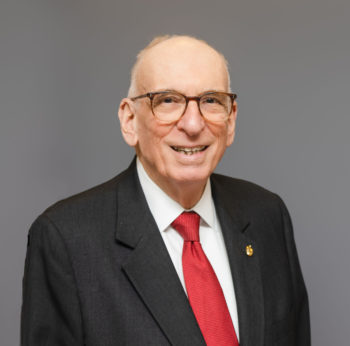On Tuesday, April 9, 2025, the Center for New York City and State Law, along with co-hosts New Yorkers for Parks and the Play Fair Coalition, welcomed the mayoral primary candidates to discuss their positions on parks, recreation and open space.
CityLaw
COMPLETE VIDEO: NYC Comptroller Candidate Debate 2025
 On Tuesday, March 18, 2025 the Center for New York City and State Law at New York Law School and the Citizens Budget Commission hosted the first 2025 NYC Comptroller Candidate Debate featuring Council Member Justin Brannan and Manhattan Borough President Mark Levine. The debate was moderated by Andrew Rein, President, Citizens Budget Commission and Ben Max, Program Director, Center for New York City and State Law.
On Tuesday, March 18, 2025 the Center for New York City and State Law at New York Law School and the Citizens Budget Commission hosted the first 2025 NYC Comptroller Candidate Debate featuring Council Member Justin Brannan and Manhattan Borough President Mark Levine. The debate was moderated by Andrew Rein, President, Citizens Budget Commission and Ben Max, Program Director, Center for New York City and State Law.
Toppling Christopher Columbus; Public Statues and Monuments
Christopher Columbus is in trouble. Political pressure to remove Columbus monuments most recently dates from 1992 during the preparations for the 500th anniversary of Columbus’s first voyage. The movement to remove the monuments accelerated in the summer of 2020 following the murder of George Floyd.
Speed of Subway Trains Challenged
 Subway trains at the Spring Street station twice struck passengers lying on the tracks on separate occasions. How fast should subway trains be moving when they enter a station? The faster the subway trains go, the more people the trains can carry and the quicker people will get to their destinations. Even a slowdown of a few seconds per train can slow the entire system. Speed is so important to the mission of the Transit … <Read More>
Subway trains at the Spring Street station twice struck passengers lying on the tracks on separate occasions. How fast should subway trains be moving when they enter a station? The faster the subway trains go, the more people the trains can carry and the quicker people will get to their destinations. Even a slowdown of a few seconds per train can slow the entire system. Speed is so important to the mission of the Transit … <Read More>
No rent abatement during shutdown
Hugo Boss store at Columbus Circle which was forced to close by COVID-19 executive order sought rent relief. Hugo Boss operates a retail store in The Shops at Columbus Circle in New York City. A/R Retail LLC is the landlord for this luxury indoor mall. Hugo Boss entered into a 13-year lease at the location as a way to gain visibility in the heavily trafficked location catering to premium market customers. Hugo Boss’s rent was … <Read More>
COMMENTARY – Last Subway: The Second Avenue Subway’s Phase 2 Begins
Since January 1, 2017, when Governor Andrew Cuomo led the celebration to open the Second Avenue Subway, much has happened. A pandemic undermined subway ridership, Governor Cuomo resigned, and a new governor and mayor took office. And now the second phase of the Second Avenue Subway has begun. This will provide the next chapter of the wonderful book by Philip Mark Plotch’s on the Second Avenue Subway, Last Subway: the Long Wait for the Next … <Read More>




